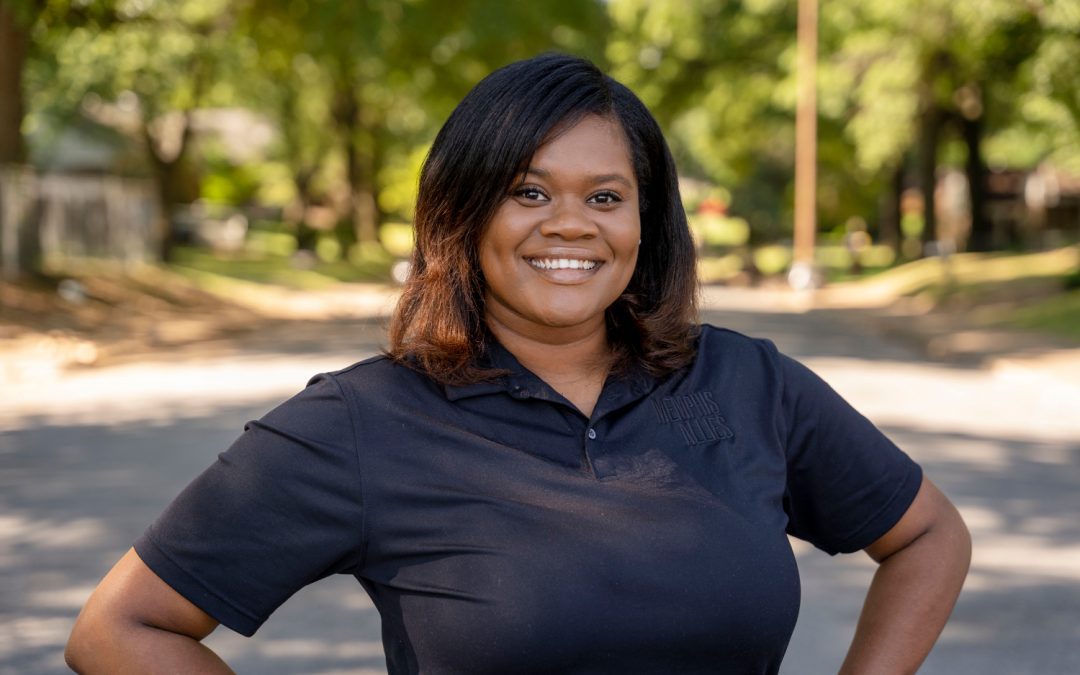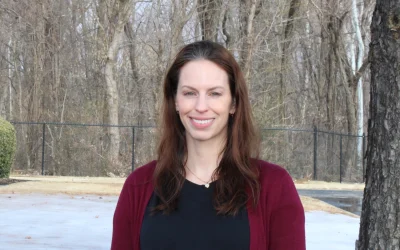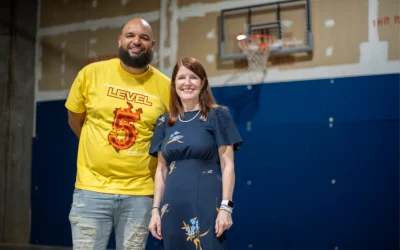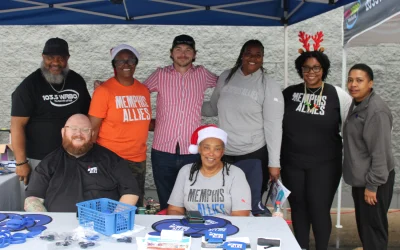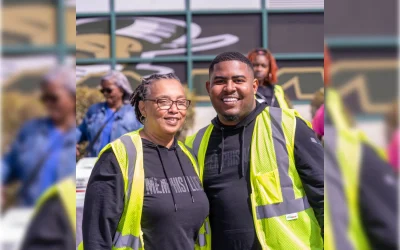SWITCH Youth: Every potential act of gun violence comes with a ‘why?’
Even when a shot has not been fired, the professionals working within Memphis Allies’ SWITCH Youth program understand time is of the essence.
Recently, a teenager in the program got into an argument and pointed a gun at someone. Later, a SWITCH Youth clinical specialist was unwinding the scenario in a meeting led by Allwyn Graham, who is a licensed program expert for Memphis Allies.
The clinical specialist took solace in the fact that no one was hurt in the incident, saying, “It was good he didn’t pull the trigger. At the same time, we’re working on anger management issues.”
Anger, Graham reminded, is a two-way street.
“Having a gun pulled on you is not something people forget,” he said.
Anger is a two-way street.
– Allywn Graham
Anger, in fact, is a core issue for many of the teenagers in SWITCH Youth. The city-wide program serves those ages 12-18 who are considered at highest risk for gun violence.
“It could be anger in reference to their family system being broken,” said Jernica McNeil, who also is a licensed program expert. “It also could be anger about losing friends they grew up with in the same neighborhood, and they were either killed or are in juvenile detention.”
Over time, it mounts up. And becomes a feeling that, if not normal, is nonetheless familiar.
“There’s been so much loss in their lives, they don’t even recognize it as trauma,” said Lesley Dumas, a SWITCH Youth regional supervisor.
Fragmented family
Grief is a common thread among the SWITCH Youth population, but it is hardly the only one.
“Absent parents,” Dumas said. “In our system, most don’t have a mom or a dad. They’re staying with an uncle, with grandma, with granddad. It’s due to the parents having been killed from being in a similar lifestyle, or they’re in jail or on drugs.”
Since Memphis Allies launched SWITCH Youth on Dec. 1, 2022:
- 92.3% of program participants have been Black
- 96.7% have been male
- 99% have been affiliated with a gang, clique or crew
Most participants are aged 15-18 at the time of enrollment.
“A lot of what I see in my boys is that they have to grow up too fast, be the man in the house,” Dumas said.
Brittney Ragin, who is director of clinical programs at Memphis Allies, says they often expand the definition of “family” to include other adults who could have a positive impact on a young person.
“We’ll use the term, ‘adult protective shield,’” Ragin said. “We ask: who are the adults engaged in that young person’s life—whether it’s a positive influence or a negative influence? And if it’s positive, how do we build on it?
“That’s a whole piece of the model, building up that adult protective shield for that young person.”

Always a chance
As for the negative influences, they are embedded. Sometimes in the family, always in the streets, and now in the broader social media culture.
Marquez Hardaway, a life coach for SWITCH Youth, has been working with a teenager who loves music; he is gang-affiliated, and he had been using his rap videos to posture and make threats.
It is about as dangerous as pointing a gun at somebody.
“If 1,000 people heard it,” Hardaway said, “at least 10 want to try you.”
So, yes, the work of SWITCH Youth is urgent every day.
SWITCH stands for Support with Intention to Create Hope. And much of that support and hope comes from the outreach specialists, life coaches, clinical specialists and licensed program experts working in collaboration to help young people forge a successful path into adulthood.
That usually involves aiding them with their education and/or finding a job.
But it also—by necessity—includes helping them to understand why they think the way they think and act the way they act.
“There’s always a chance for change when we’re talking about young people,” said McNeil, who is one of the leaders of consultation sessions. “There’s always an opportunity for us to shift their mindset, and their way of believing.”
More Posts
Pain is Universal
Image above: Jennifer Davis, Memphis Allies SWITCH program clinical supervisor Memphis Allies Clinical Supervisor Jennifer Davis: ‘Pain is universal.’ Fight. Flight. Freeze. Imagine living every day within one — or all — of those three realms. Many Memphis Allies...
Memphis Allies sees progress in reforming violent offenders. Here’s how
Image above: Memphis Allies Managing Director of Operations Carl Davis and Executive Director Susan Deason pose for a portrait in the recreation area of the facility in Memphis, Tenn., on September 3, 2025. Chris Day/The Commercial Appeal Lucas Finton, Memphis...
Holiday Toy Drive
Image above: Memphis Allies teams up with 103.5 WRBO at the holiday toy drive Community generosity thrives at Memphis Allies toy drive Memphis Allies hosted a Holiday Heroes toy drive in December. Memphis Allies staff, along with radio station 103.5 WRBO, accepted...
Making Vital Connections
Image above: Debbie Thompson, Memphis Allies community relations manager, and Jevonte Porter, Memphis Allies community relations director Memphis Allies community relations team making vital connections In 2022, when Memphis Allies began sending outreach specialists...

